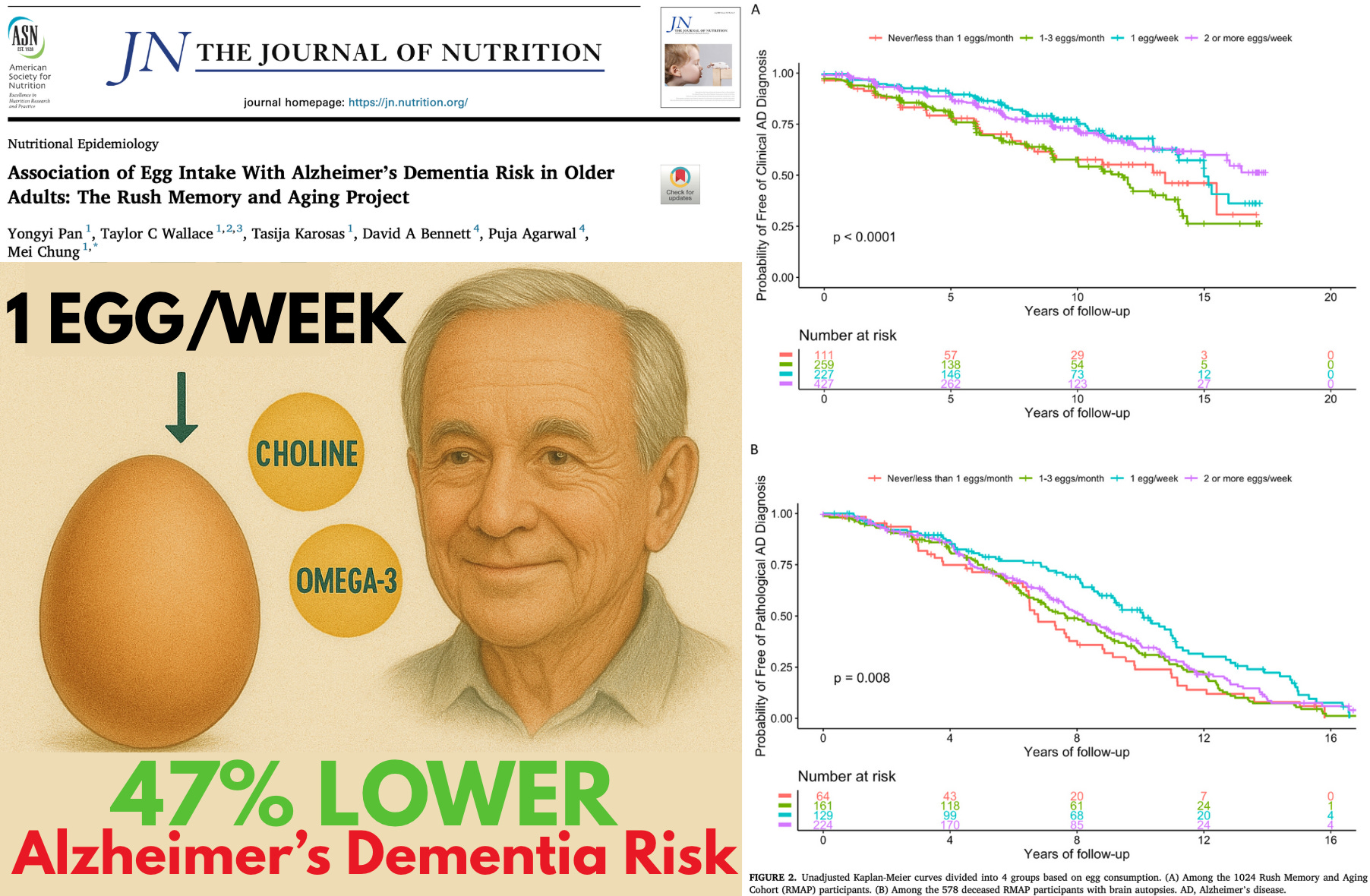 By Independent News Roundup
By Independent News Roundup
Nicolas Hulscher, MPH Aug 02, 2025
Alzheimer’s disease now affects an estimated 6.9 million Americans over 65, with numbers projected to more than double by 2060. There’s currently no cure — making prevention strategies critical.
A recent study by Pan et al followed 1,024 older adults (average age 81) in the Rush Memory and Aging Project for an average of 6.7 years. Participants underwent annual cognitive assessments and lifestyle surveys, and a subgroup even donated their brains for postmortem analysis.
The results? Eating just one or more eggs per week was linked to a ~47% lower risk of developing Alzheimer’s dementia — and the protection may be partly due to choline, a brain-essential nutrient found abundantly in eggs. This is the first U.S. study to examine egg intake against both clinical Alzheimer’s diagnoses and physical brain pathology.

This study suggests that eating just a few eggs a week could be an easy, affordable step to help lower Alzheimer’s dementia risk — especially for older adults.
Epidemiologist and Foundation Administrator, McCullough Foundation
www.mcculloughfnd.org
